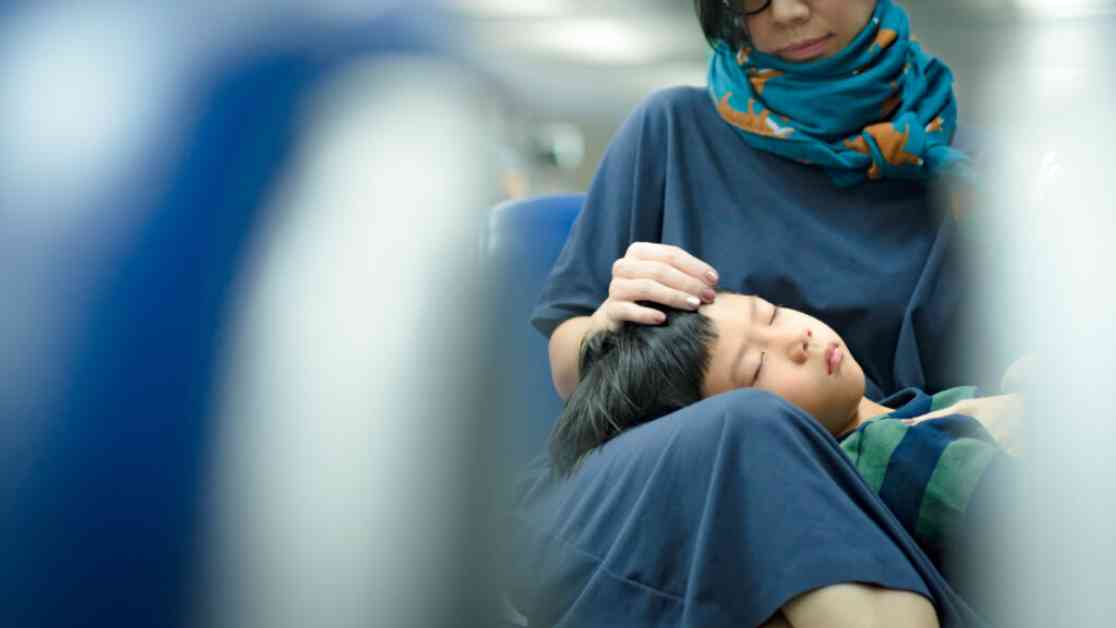Understanding the Diverse Symptoms of Long Covid in Children
Rachel Gross, a pediatrician and population health researcher, is on a mission to dispel misconceptions surrounding children and Covid-19. As the Covid-19 pandemic unfolded, there was initially a belief that children were immune to the disease. However, as more cases emerged, it became evident that children could indeed contract the virus. Subsequently, the focus shifted to long Covid, a condition characterized by persistent or recurring symptoms post-infection, which was initially thought to primarily affect adults.
In a groundbreaking study published in JAMA, Gross and the RECOVER-Pediatrics Consortium shed light on the diverse symptoms of long Covid in children. Contrary to popular belief, the study revealed that long Covid manifests differently in children compared to adults, with symptoms varying based on the child’s age. This research is crucial in helping healthcare professionals identify and treat children with long Covid effectively.
The study, part of the federally funded RECOVER initiative, examined data from electronic health records and caregiver reports of 5,376 children aged 6 to 17 across 60 sites in the United States. The findings showed that school-age children (6 to 11 years old) with long Covid were more likely to experience symptoms such as headaches, memory issues, and abdominal pain, while adolescents (12 to 17 years old) commonly reported fatigue, body pain, and cognitive difficulties post-infection.
Alicia Johnston, an infectious disease physician at Boston Children’s Hospital, emphasized the importance of understanding the different phenotypes of long Covid in children. She highlighted the need for further research to unravel the underlying pathophysiological processes driving these symptoms and guide future clinical trials aimed at treating long Covid in children.
Gross underscored the study’s objective of identifying children with long Covid and tracking how their symptoms evolve over time. By gaining insights into the reasons behind the occurrence of long Covid in children, researchers hope to pave the way for more effective treatments and interventions.
While the RECOVER initiative has faced criticism for its slow progress and limited insights into the causes and treatments of long Covid, the pediatric arm of the study has received accolades for its responsiveness to patient feedback. Megan Carmilani, a patient representative and founder of Long Covid Families, commended the pediatric researchers for their collaboration with families and caregivers in addressing the challenges faced by children with long Covid.
Despite the progress made in understanding long Covid in children, there are still many unanswered questions surrounding the condition. Johnston emphasized the lack of clinical trials investigating effective therapies for long Covid in children and adults, highlighting the need for more research into the effects of reinfection, the role of Covid vaccination in preventing long Covid, and the impact of different Covid strains on the risk of long Covid.
The JAMA study did not aim to determine the exact prevalence of long Covid in children, but estimates suggest that up to 5.8 million children may be living with the condition. This underscores the importance of continued research to better understand and address the challenges faced by children with long Covid.
Looking ahead, researchers are focused on unraveling the mechanisms underlying long Covid in children and tailoring treatments to suit different age groups. Gross pointed out that the changes occurring in children’s bodies and immune systems as they grow and develop could play a role in how long Covid manifests in different age groups.
As the research progresses, the focus will also shift to understanding the impact of long Covid on the youngest children, from birth to 5 years old. By delving into the mechanisms at play in this age group, researchers hope to develop targeted interventions to alleviate the symptoms of long Covid in young children.
In conclusion, the study on long Covid in children represents a significant step towards understanding and addressing the challenges posed by this condition. By recognizing the unique symptoms experienced by children with long Covid and tailoring treatments to suit different age groups, researchers aim to improve the quality of life for children affected by this debilitating condition. Through continued research and collaboration with patient representatives, healthcare professionals are working towards finding effective therapies and interventions to mitigate the impact of long Covid on children’s health and well-being.


















